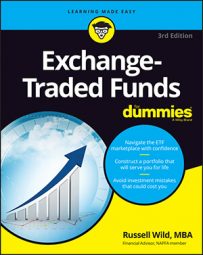The recent astonishing returns of emerging market stocks and ETFs are due in good part to sharp increases in the prices of commodities, such as oil, which come largely from these nations. But commodity prices fluctuate greatly. And political unrest, corruption, and overpopulation, as well as serious environmental challenges, plague many of these countries.
On the other hand, emerging market stocks are perhaps still (despite their recent rise) underpriced. Many emerging economies seem especially strong. And — perhaps most importantly — these countries have young populations. Children tend to grow up to be workers, consumers, and perhaps even investors. Future growth seems almost assured.
Vanguard MSCI Emerging Market ETF (VWO)
Indexed to: The MSCI Emerging Markets Index, which tracks roughly 900 companies in 23 emerging market nations
Expense ratio: 0.22 percent
Top five country holdings: China, Brazil, Korea, Taiwan, South Africa
There’s no better way to capture the potential growth of emerging market stocks than through VWO. The cost is the lowest in the pack, and the diversity of investments is more than adequate.
BLDRS Emerging Markets 50 ADR (ADRE)
Indexed to: The Bank of New York Mellon Emerging Markets 50 ADR Index, a market-weighted basket of 50 emerging market–based ADRs
Expense ratio: 0.30 percent
Top five country holdings: Brazil, China, Taiwan, South Korea, India
Yeah, 50 companies falls way short of Vanguard’s 900, but 50 companies is still enough to give you pretty good diversification. This ETF is a great way to tap into emerging markets, but the Vanguard fund is still the better option. Note that there is some overlap in the countries represented by this fund and the BLDRS Asia fund.
iShares MSCI Emerging Markets (EEM)
Indexed to: MSCI Emerging Markets Index, a basket of approximately 800 companies in 20 emerging market nations
Expense ratio: 0.69 percent
Top five country holdings: China, Brazil, South Korea, Taiwan, South Africa
Good fund. Good company. Good index. But there is a major drawback: it is more than twice the price of the other options in this area.

